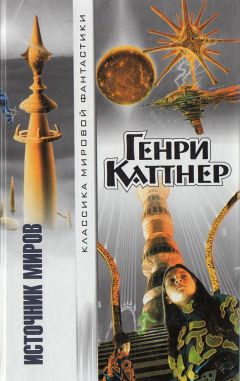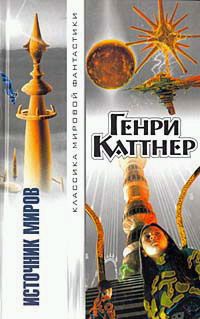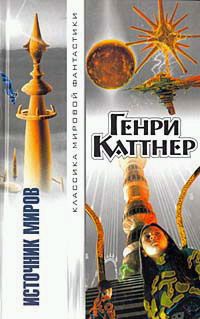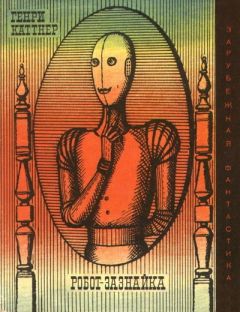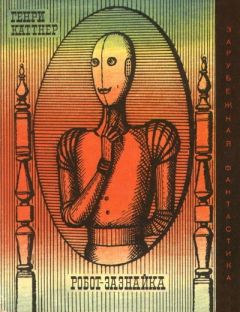Nancy - The Islands of the Blessed
During long winter evenings the villagers gathered at the chief’s hearth for song and hot cider. The Bard played his harp, and when he wearied, Jack and Thorgil recited sagas. Brother Aiden, the little monk from the Holy Isle, joined in with tales of the god Jesus, of how He fed a thousand people with five fishes and performed many other diverting miracles. But the real draw at these gatherings was Pega. Her voice was so compelling that the very storm blasts hushed to listen to her.
“By Thor, those Tanner brats are meddling with my horses!” Thorgil broke into a run, and Jack hurried after to break up the inevitable fight. The tanner’s daughters were fascinated by the horses, a gift from King Brutus the year before. Actually, it was unclear whose horses they were, since they’d been handed to the entire group of pilgrims returning from Bebba’s Town. Jack thought they ought to be the Bard’s, but Thorgil insisted that they were hers by right, since she was the only true warrior among them.
“Get off, you mangy curs! You’ll ruin their training!” Thorgil whistled and the horses wheeled, throwing their small riders into the dirt. The animals came to a halt before the shield maiden, prancing nervously like the spirited creatures they were. Jack ran to pick up the howling girls. “Tell them to shut up or I’ll really give them something to blubber about,” snarled Thorgil, stroking the manes of the horses.
Jack checked the girls and found they had no real injuries. They were eight and ten, stunted from years of bad food and the noxious air of the old tannery where they had lived until their father died. “They’re only children,” Jack reproved, wiping the girls’ dirty, tear-streaked faces with the tail of his tunic. “You probably did the same thing at that age.”
“I was a shield maiden. I was the daughter of—”
“Careful!” Jack said sharply. The girls stopped crying and eyed Thorgil curiously.
“Who was your da, then?” the older one demanded.
“Probably a troll,” the younger said, giggling. Thorgil reached down, but they sped off before she could wallop them with a rock.
“Filthy bog rats,” Thorgil said.
“All it will take is one slip,” Jack warned. “One hint that you are not a Saxon to someone who has reason to hate you, and the whole village will turn against you. And it will turn against my parents and me for sheltering you.”
“That debt is the only thing that keeps me from flinging my true heritage into their faces.” Thorgil embraced the neck of one of the horses, and it blew a long, horsey kiss at her. Jack was impressed, as always, by how much the animals loved her. Too bad she couldn’t inspire the same sentiment in people.
“Let’s go to the house,” Jack said. “I’m starving, and we have to cut bracken all afternoon.”
“Curse the bracken,” swore Thorgil. “Curse the pointless, boring existence in this village. For one rotten turnip I’d throw myself off a cliff into the sea!”
“No, you wouldn’t,” said Jack, leading the way.
Chapter Two
THE WILD HUNT
Thorgil’s bad mood followed them back to the house. She accepted Mother’s food with a scowl and set about stuffing herself. “In this village it’s customary to say thank you for food,” Mother said. Jack sighed inwardly. It was a battle that never ended, trying to instill basic courtesy into the shield maiden.
“Why?” demanded Thorgil.
“It shows gratitude.”
“I am grateful. I’m eating this swill, aren’t I? Besides, it makes as much sense for you to compliment me for cutting bracken. If everyone started thanking everyone else for the smallest chores, we’d never get anything done.”
“That’s not the point,” Mother said patiently. “People want to hear kind words. It’s like saying ‘Good morning’ or ‘How are you?’”
“What if it’s a rotten morning or I don’t give a flying flip how someone feels?”
“Oh, have it your way!” exclaimed Mother. “Sometimes I wish a Northman ship would swoop down and take you away!” She hurried outside and Jack raised his eyebrows. It was unlike Mother to lose her temper so completely. But then, Thorgil was capable of making even gentle Brother Aiden blot his manuscript when she was on a rampage.
Jack heard Mother and Pega discussing how to protect the livestock from the coming storm. Cows and horses would have to crowd together in the barn. The more aggressive sheep would have to fend for themselves outside.
“Even Olaf One-Brow wished people a good morning,” remarked Jack, naming Thorgil’s dead foster father.
“Only if it was a good morning. He never lied.” Thorgil shadowed her eyes with her hand.
“Are you crying?”
“Of course not. It’s the filthy smoke in this filthy hovel.” The shield maiden continued to shadow her eyes.
“Do you want some of my bread?”
“Why would I want your weevil-infested leavings?” Thorgil said, though from the way she was eating, it was clear she was ravenous.
There was no point trying to be sympathetic, Jack thought. She only looked upon it as weakness. Her moods built up like summer storms, forking lightning in all directions, but if you were patient—and closed your ears to her insults—the clouds would eventually blow away. He wasn’t sure which he preferred, Thorgil’s glooms or her periodic episodes of joy. Sometimes she was seized by a kind of wild rapture in which colors, smells, and sounds overwhelmed her with ecstasy. Then she would grab him by the arm and force him to pay attention to whatever it was.
The Bard said this happened because Thorgil had been raised as a berserker, dedicated to death. Now she was controlled by the life force because of the rune of protection she wore. It was only natural that the two instincts were at war.
Pega came to the door with a hen caged in a basket, and Jack’s heart lifted. Pega never made you feel rotten. She was endlessly thoughtful, always looking for ways to make people happy. She helped Mother with the cooking, weeded the Bard’s herb garden, and stood over Brother Aiden, making sure he ate regularly. She had been born a slave and was touchingly grateful for any welcome anywhere. Jack thought she looked almost pretty, in spite of a disfiguring birthmark across half her face. It was her spirit shining through, the Bard said, just as Thorgil’s simmering malice spoiled what could have been real beauty.
“We’ll have to keep the chickens here,” Pega announced, placing the basket against a wall. “You should see the sky to the south! It’s weird and dark, but I can’t make out any clouds.”
“Do you need help?” Jack asked hopefully.
“I need you to take food to the workers in the fields,” Mother said, bumping the door open as she carried in another hen. “From the look of that sky, there won’t be time to cut more bracken. You can double-check the hives on the way back.”
She didn’t smile, and Jack felt unfairly included in Thorgil’s disgrace. It wasn’t his fault he couldn’t keep the shield maiden in line. Even Olaf One-Brow used to hang her over a cliff, by way of getting her attention, when she acted up. Unfortunately, Olaf had been just as likely to reward her for nasty behavior. Northmen admired such things.
Jack and Thorgil loaded the donkey with baskets of bread and cider. Most of the villagers were harvesting hay as quickly as possible. A few, like Mother and the chief’s wife, were supplying food to keep them going. The sky outside had indeed changed remarkably in just a few minutes. To the north it was blue, but it deepened to slate when you turned toward the south. And yet, as Pega had said, you couldn’t make out any clouds.
“What’s that odd smell?” said Thorgil.
“I’m not sure,” said Jack. “It’s a little like clothes drying in sunlight.”
“It’s… nice. Makes me feel like running or singing. Maybe this storm will be fun after all.” Some of the gloom lifted from Thorgil’s face. Jack thought it was typical for her to be cheered by something that worried everyone else.
“I’ve never seen a sky like that,” he said.
“I have,” said the shield maiden, “when I was very small. My mother carried me to a cellar where they stored vegetables. She was trying to protect me, and I remember her lying on top of me. I heard dogs howling, or perhaps it was the wind—”
“We’d better get our chores done,” Jack said to change the subject. Thorgil’s mother had been a slave, sacrificed on the funeral pyre of her real father. All of Thorgil’s memories from that part of her life were evil. When she could be persuaded to speak of them at all, they drove her even deeper into despair.
They hurried from farm to farm, delivering food to people in the fields and barns. The storage barns had floors of slate, over which was spread a layer of bracken. Bracken not only protected the hay on top from rising damp, but also cut into the mouths of rats and discouraged them from invading. Livestock depended on this fodder for winter. If it was spoiled by rain, it would rot and the animals would starve. The newly cut hay gave a rich, green smell to the air.
In each field Jack saw people bending, slashing, and bundling. When possible, the workers used the blacksmith’s cart for transport. But speed was important, and for the most part, they had to carry the hay themselves. Those with no barns protected their haystacks with inverted cones of thatch, somewhat like giant hats, and hoped for the best.
Months ago Jack had tried to hitch Thorgil’s ponies to a cart, but they fought the harness and were completely ungovernable. This was another fault held against him unfairly. Jack knew nothing about handling horses. It was Thorgil who had their trust, but she refused to train them for farmwork. They were warriors, she insisted, not thralls.
Thorgil. Jack saw how the villagers cautiously accepted food from her and turned away to make the sign of the cross.
They left the donkey in the last barn and walked on to check the hives. “We’d better hurry,” said Jack, looking at the darkening southern sky. Were there clouds? Something certainly teemed in the distance, and yet the air was still and dead. Leaves on the trees hung straight down.
Even the bees knew something was wrong. They had stopped zipping to and fro in search of nectar, and warrior bees at the entrances danced around as though searching for a hidden enemy. The nests were protected by inverted baskets, somewhat like the hats over the exposed haystacks. The bees would have been far safer indoors, but moving hives confused them dreadfully. They would have to survive where they were.
Father had built a stone barrier around them early in the year, to keep sheep from grazing too close, and now Jack was glad of this extra protection. “They’re acting as though it’s night,” he said, wondering. “They’ve almost all gone inside. Listen to that hum!”
“You know, I can almost understand it,” said Thorgil, pressing her ear to one of the inverted baskets. “It’s like a birdcall. Isn’t that strange?”
“Bees are creatures of the air. What are they saying?”
